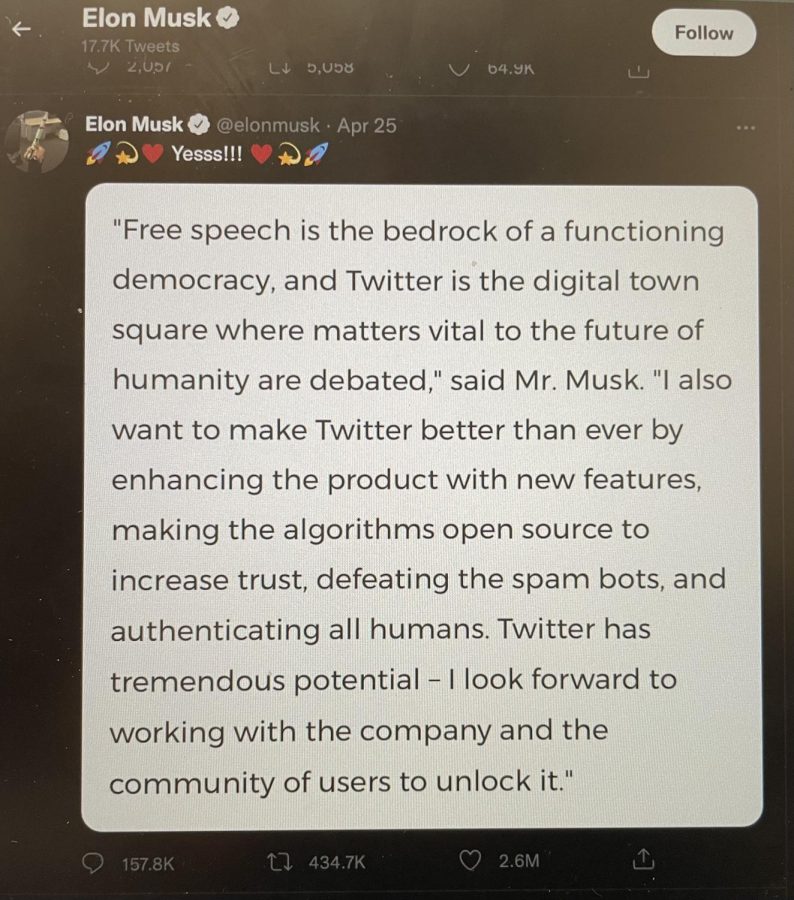Elon Musk, the Tesla and SpaceX CEO, has recently secured a deal with Twitter. Musk, the company’s largest shareholder, finally decided to purchase it outright for $54.20 a share, an evaluation of a whopping $44 billion. Though still awaiting the approval of stockholders, Twitter’s board has unanimously accepted the offer. The deal is expected to be finalized this year, in approximately three to six months.
Over the past few weeks, Musk has hinted at the changes he aims to implement as the newest owner of the platform, looking forward to “unlock” Twitter’s “tremendous potential.” The billionaire believes that these changes can only be achieved if the firm goes private, where it will have the opportunity to restructure itself without the scrutiny of the public or activist shareholders.
Going private would further allow the company to avoid the “costly and time-consuming regulatory, financial reporting, corporate governance and disclosure requirements,” reports Daily Capital. Twitter cofounder and ex-CEO Jack Dorsey supports Musk’s decision, agreeing that going private “is the first correct step.”
Despite being both a high-profile and controversial user with over 92 million followers to date, Musk’s purchase came seemingly out of nowhere. He explains that his intentions are framed around the promotion of free speech, expressing that this liberty “is the bedrock of a functioning democracy, and Twitter is the digital town square where matters vital to the future of humanity are debated.”
In the past, Musk has criticized the platform, arguing that it participates in censorship and stifles free speech. With this, the billionaire calls for drastic revision. “For Twitter to deserve public trust,” determines Musk in a tweet, “it must be politically neutral, which effectively means upsetting the far right and the far left equally.”
Musk intends to defeat spam bots, authenticate all humans, and open up the algorithm to promote a sense of trust within the Twitter community. He also hopes that his new power will not drive any users to leave, voicing in a tweet, “I hope that even my worst critics remain on Twitter, because that is what free speech means.”
One of Musk’s most controversial objectives is to release the ban on former President Donald Trump’s Twitter account. Trump’s account faced shutdown following the attack on the capital, on January 6, 2021. Speaking at an event hosted by the Financial Times, Musk deemed the ban “a morally bad decision.” Trump’s possible re-admission has sparked significant controversy, “exciting users on the right and alienating those on the left,” say Ian Sherr and Queenie Wong of CNET.
It is not entirely certain as to what Musk’s deal will mean for the future of the social media platform. However, there is one thing that many experts have agreed on: his next steps will critically shape the platform and even the world. Twitter has a significant social footprint, as Nicolas Vega of CNBC puts it, “it seems like the only certainty for Twitter is uncertainty.”
Musk’s ultimate priority is to improve the user experience, which he amusingly declared in a tweet: “Let’s make Twitter maximum fun!”












